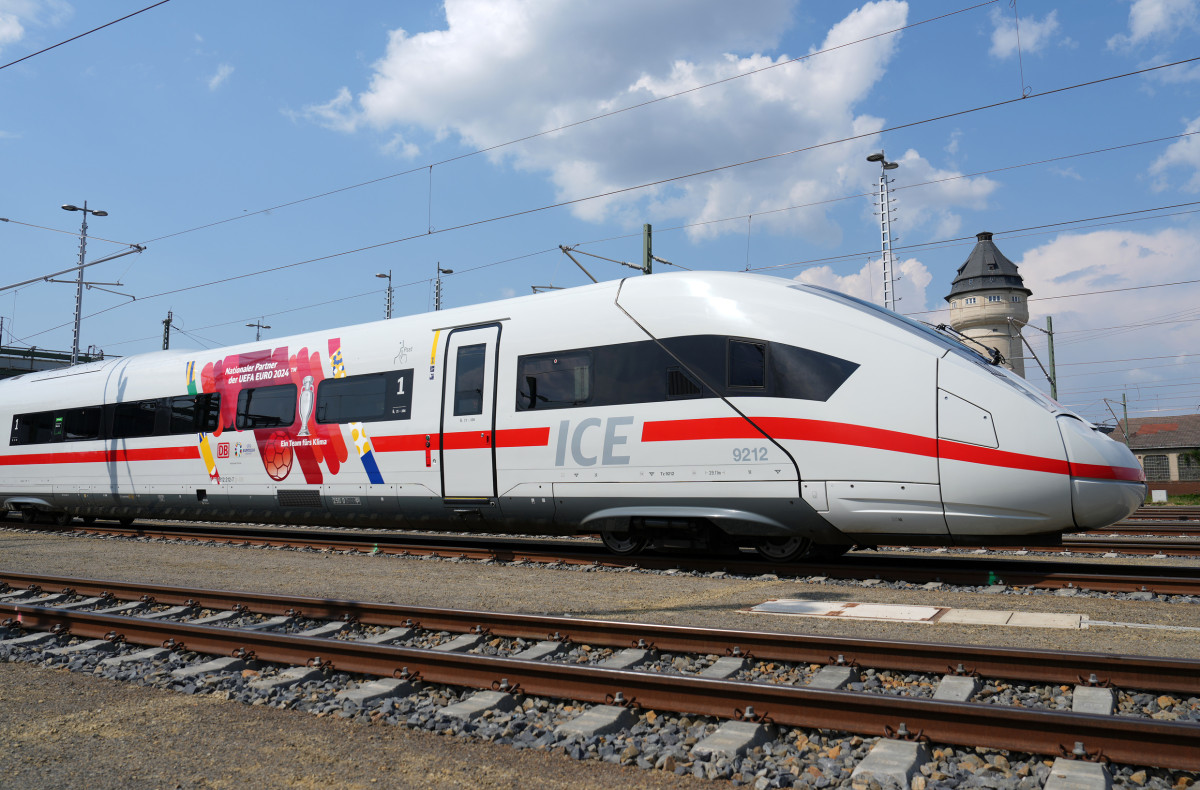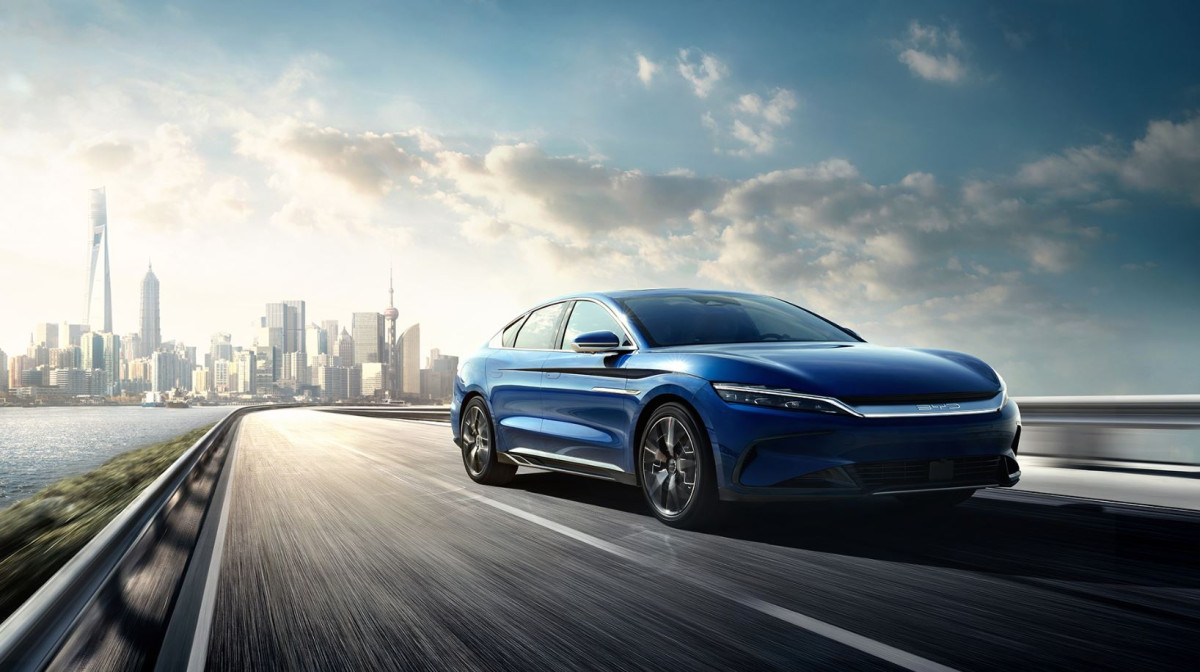Vote25: Transport transition poses policy conundrum for next German government
As Germany prepares for snap elections in February 2025, its lagging transition to climate-friendly mobility is at a critical juncture. Headlines about possible layoffs and plant closures at VW, as well as collapsing profits at Mercedes and BMW, fan concerns about the long-term viability of its carmaking industry, which is famous the world over for its combustion engine technology but now struggles to master the bumpy transition to electric cars. At the same time, constant delays and cancellations have drawn international attention to the debacle of its rail network, while the country’s roads and bridges are being described as “aging and crumbling”.
Given many years of neglect, indecisiveness, and controversies about the way forward, the comprehensive overhaul of Germany’s transport sector – necessary to get it on track to climate neutrality – has barely begun. Complicating matters further, authorities lack the resources to address the massive modernisation backlog, especially following last year’s budget crisis. The next government therefore faces a tremendous challenge, given that it will have to ensure that climate targets are met in 2030 – the year following the end of the upcoming legislative period.
Experts warn that further delays are not an option as this would only push up the eventual costs. “The longer politicians wait, the more difficult and expensive it will be,” Christian Hochfeld, director of mobility think tank Agora Verkehrswende, told Clean Energy Wire.
Car companies are equally keen for action. “We mustn’t underestimate the importance of the year 2025,” according to Hildegard Müller, the head of Germany’s auto industry lobby group VDA. She said her sector must make headway in the “biggest industrial transformation in our history”, but added: “Above all, however, 2025 must also be a year of political action. This applies to a new German government as well as to Brussels and the new EU Commission.”
Stable emissions for decades
Transport emissions in Germany have remained roughly stable since the 1990s, as the trend towards heavier SUVs ate up the progress achieved by more efficient engines and electric vehicles. Current projections by the country’s environment agency (UBA) indicate that the transport sector will emit around 180 million tonnes more CO2 than planned by 2030. “There is no sign of a trend reversal,” UBA said. Agency head Dirk Messner lamented that “Transport remains the problem child of our climate efforts.”
Germany’s transport woes are playing out against the backdrop of growing concerns about its overall economy. The country is increasingly referred to as the “sick man of Europe” because of a broad decline of manufacturing activity, a weakening labour market, expensive energy as a result of the Ukraine war, tensions with China, and uncertainties about the effects of Donald Trump’s second U.S. presidency. The Republican has vowed to slap tariffs on key trade partners, including Germany and the rest of the EU.
The economic malaise is set to remain a focal point during the upcoming election campaign and beyond, potentially narrowing the financial scope for ambitious transport policies.
A full-blown car Industry crisis?
The shift to electric cars is the central lever to reduce transport emissions, which is why the outgoing government was aiming to have 15 million electric cars on the country’s roads by 2030. But the ramp-up of low-emission vehicles has not exactly been smooth: Following the budget crisis, the government abruptly ended its electric car subsidy programme late last year, and EV sales collapsed. In 2024, domestic sales of pure battery-electric cars are down by around one quarter – only around one in seven new cars sold in Germany was fully electric, pushing the 2030 target increasingly out of reach.
But sluggish domestic sales are only one of many reasons for the crisis at VW, the country’s largest private employer, which has become an emblem for Germany’s industrial woes, and has threatened to shed tens of thousands of jobs in its home country.
The troubles in the auto industry, still a cornerstone of the economy, run deep: It is grappling with a profound transformation driven by the rapid shift to electric mobility across the globe, with fierce competition from new battery-driven competitors ranging from Tesla to ascending Chinese manufacturers such as BYD. Compounding these problems, German carmakers are struggling with other industry trends, such as autonomous driving, infotainment, and AI features. All of these require fresh IT know-how, rather than the incumbents’ engineering finesse honed over decades.
These problems are particularly salient in Germany’s large supplier industry, which includes leading companies like Bosch, Schaeffler, and ZF Friedrichshafen. But whereas these giants have scope to adapt, countless companies specialise exclusively on combustion engine technologies. This structural industry transformation has been forecast by experts for many years – it is now in full swing, but many policymakers and parts of industry appear still woefully unprepared.
Export success
Notwithstanding these undeniable challenges, many reports about the sorry state of Germany’s car industry are overblown. “More electric cars were produced in Germany in October than in any previous month,” industry association VDA proudly reported. “The electric share of total production was at 38 percent in October, also higher than ever before.” And despite a sharp drop, the country’s carmakers still count profits in the billions of euros. The International Monetary Fund (IMF) even cited last year’s 60 percent electric car export increase as a sign that concerns about widespread deindustrialization in Germany are “overstated”. “Germany's electric-vehicle makers are embracing the green transition,” the IMF analysts said.
Indeed, neither the German industry lobby group VDA, nor individual carmakers like Mercedes, call for slowing down the net-zero transition. “We are not questioning the decarbonisation at all,” Mercedes CEO Ola Källenius, who will become president of the European car industry lobby group ACEA in January, told Süddeutsche Zeitung. But he added that the targets must be compatible with industrial and economic policy.
Norway’s near-complete shift to electric vehicles in new registrations illustrates that consumer demand is not a problem if the framework conditions are right. But in contrast to the Nordic country’s stable and generous tax cuts, subsidies, and other support, government backing for electric vehicles has been on a slalom course in Germany, unsettling consumers. Källenius also pointed out that while charging infrastructure recently made good progress in Germany, it’s still very patchy in Southern European countries.
VDA’s Müller also put industrial policy front and centre of her expectations for the next government. Asked to name her three most important demands, she replied: “Framework conditions, framework conditions, framework conditions.” She warned that Germany is rapidly losing international competitiveness, aggravating industry’s response to many new competitors and the switch to e-mobility. She called for cutting energy prices, taxes, and red tape.
Independent car industry experts agree with the assessment that misguided policies are partly to blame for the sector’s problems. “Industrial policy in Berlin and Brussels has exacerbated the problem,” said Ferdinand Dudenhoeffer, who heads the Center for Automotive Research (CAR). But he also said that many automakers have been asleep at the wheel.
For example, many experts accuse European carmakers of failing to offer affordable electric vehicles for the mass market – leaving a gap which Chinese competitors are happy to fill. Instead, the average electric car sold in Germany has become much more expensive. As a result, their use still remains largely restricted to “early adopters with a typically higher socio-economic status”, the clean mobility lobby group ICCT lamented, and called on the government to follow the example of other countries such as France that have implemented support schemes that pay more attention to social aspects.
How relevant is the EU’s 2035 combustion engine phaseout?
Given that the car industry directly employs around 800,000 people in Germany, it’s little wonder that the sector’s woes have already filtered into the country’s snap election campaign. Green economy and climate minister Robert Habeck, who currently stands little chance of fulfilling his declared ambition to succeed the Social Democrat Olaf Scholz as chancellor, tabled a “package to modernise the German automotive industry”, with “concrete support for electric mobility” at its centre, including credits for free charging, EV tax incentives, and EV leasing subsidies aimed at low-income groups.
In contrast, Friedrich Merz, who heads the Conservatives, which are far ahead in the polls, has repeatedly called for reversing the EU’s 2035 phaseout of combustion engine cars. His position echoes demands from the pro-business Free Democrats (FDP), as well as the far-right Alternative for Germany (AfD). The EPP EU parliamentary group also advocates to “reverse” the phaseout decision.
But both Müller and Källenius refuse to openly support this call. Instead, they argue that the controversial discussion misses the point. “Whether the last few percent of combustion engines will still be registered in 2035 or later distorts our view of the challenges we face,” Müller said.
Many other industry players and clean mobility activists argue that market forces will dictate the transition to battery-electric vehicles regardless of policy decisions in Berlin or Brussels. They claim that a reversal would only undermine the investment security needed for planning the transition, thus risking long-term competitiveness for the sake of short-term combustion-engine profits.

It's not just about cars
The discussion about making transport climate-friendly is often restricted to electric cars in Germany but the challenge requires a much broader view of mobility that includes offering attractive alternatives such as public transport, walking, and cycling. Germany is increasingly falling behind other European countries like France, the Netherlands, or Spain, which have surged ahead in promoting clean urban mobility through extensive cycling infrastructure and limiting car use.
Clean mobility activists have long criticized what they see as excessive policy focus on automotive innovation, and called for stronger investments in alternative modes of transport. Their demands are backed by public opinion: Almost 70 percent of Germans believe a "fundamental rethink is needed in the area of mobility" due to the climate crisis. Two-thirds support state assistance for emission-free mobility options, and one-third of car owners could envision giving up their vehicles for alternative solutions, particularly in urban areas.
But the sorry state of the country’s railways is a testament to the failure of previous governments to tackle mobility with a truly comprehensive approach. Many years of underinvestment have turned the country’s once renowned Deutsche Bahn rail service into a laughing stock of permanent delays.
But the outgoing government has at least “initiated decisive developments in railway policy”, according to the Pro-Rail Alliance, a civil society and rail industry lobby group. Record investments in 2024 and the flat-rate public transport ticket are “achievements that will continue beyond the legislative period and should be developed further”, the group said.
Around 13 million people use the so-called Germany ticket (Deutschlandticket), which has been widely credited for making public transport more accessible. “The next federal government should make the Germany ticket a permanent offer whose funding is not constantly being called into question. Then even more people will use the ticket and leave their cars at home more often,” said Pro-Rail Alliance head Dirk Flege.
Uphill battle
The next German government will face an uphill battle to reconcile economic and financial stability, climate commitments, and socially just mobility – while the lagging transport transition increasingly imperils the country’s self-image as a climate leader on the global stage.
The upcoming election campaign will show whether the next government can make strides towards a truly comprehensive transport transition. It doesn’t bode well that transport policy is increasingly dragged into a culture war, where populists from both the left and the right dismiss any kind of climate action as ideological wishful thinking that undermines the country’s economy.



